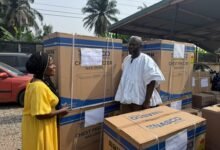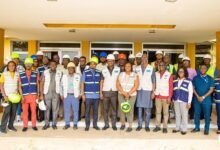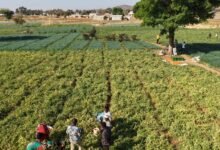Ghanaian students excel at Harvard Model UN, win $10,000 grant for social development.
An 11-member Ghanaian students group made their country proud in Boston, Massachussets when they received awards for winning the Resolution Project pitch contest as part of this year’s Harvard National Model United Nations (HNMUN) Conference in the United States of America.
For their rewards, the group received $10,000 grant to enable them to undertake various social development interventions in their home country within the framework of the Sustainable Development Goals (SDGs) of the United Nations.
A statement released by Life-Link Friendship Schools, Ghana and made available to the media explains, that the Harvard Resolution Project Social Venture Challenge (SVC), which is one of the eight global Resolution Project events, is a peripheral event which is organised on the sidelines of the annual Harvard gathering which saw the participation of 23 Ghanaian students under the auspices of Life-Link Friendship Schools, Ghana.
The Resolution SVC offers students the opportunity to generate ‘outstanding venture ideas’ to address social and humanitarian challenges in their local communities.
The winners are selected as recipients of a venture grant of US$ 2000 per group (starting or existing) project and a prestigious individual “Resolution Fellowship”: “a strong and growing community of young leaders” from all over the world, whose core aim is to help the fellows succeed in their ventures and beyond.
The 11 students, who participated in the contest, constituted themselves into five different social ventures, from a pool of four different universities.
They were Hunvillah Asamoah (KNUST) and Horace Claud Allan Odoi (University of Ghana) who worked on “Burden To Save”, a project to provide toilet facilities for the people of Dayiri in the Northern Region of Ghana to tackle cholera; and Gilbert Kekeli Yao Dzeketey (University of Professional Studies) and Ernest Kekeli Awudey (University of Ghana), who pitched to work on “Match Dey”, a project that tackles reproductive health through sex education in rural areas and a contraceptive delivery system for universities.
The third team were Prince Annan and Akosua Benhene Nyantakyi both from the Kings University College and Priscilla Mensah Ankoh of the KNUST whose project is titled “Computer Minds” and highlights an initiative tailored for rural school children in Gomoa Dunkwa in the Central Region of Ghana to reduce the high rate of computer illiteracy.
The others are “School of Thoughts” team made up of Abraham Agoni (University of Ghana) and Owiredu Kissi (Ghana Institute of Journalism). Their project seeks to bridge the educational gap between rural and urban areas, particularly in the North of Ghana by training young individuals in rural areas to identify their potentials to change society.
The last group was called “SPES”, represented by Emmanuella Agyeman Tuffour (University of Ghana) and Adwoa Agyeman Tuffour (KNUST) undertook a project to transform the newborn healthcare experience by providing safe, effective and affordable phototherapy eye protectors.
According to the statement, Venezuela, Indonesia, Bangladesh, Liberia and USA were the other countries whose students participated in the contest.
The co-founder of the award scheme and head of the jury, Howard A. Levine, commended the winners for their exemplary leadership and urged students to be problem solvers.
“We need your leadership, your ideas and your unquenchable desire for change. So when you see an issue, when you see a problem in your community, get to solving it”, he told the students.
The Executive Director of Life-Link Friendship Schools Ghana, Mr Ernest Gyimah-Danquah, lauded the students for bringing honour to their schools and the country.
According to him, it was the fifth time a Ghanaian student delegation from Life-Link Ghana participated in the contest and won with the total number of 22 Fellowships.
Life-Link runs annual Model United Nations Conferences for students at all educational levels.
For 20 years, the organisation has worked with the UN system in Ghana and Ghana’s Ministry of Foreign Affairs to train and equip students in international diplomacy, leadership and problem-solving. The trainings stimulate the ability of the Ghanaian child in taking centre-stage in discussing global issues.
The delegation has since returned home and is expected to commence implementation of their projects in earnest.
By Times Reporter






